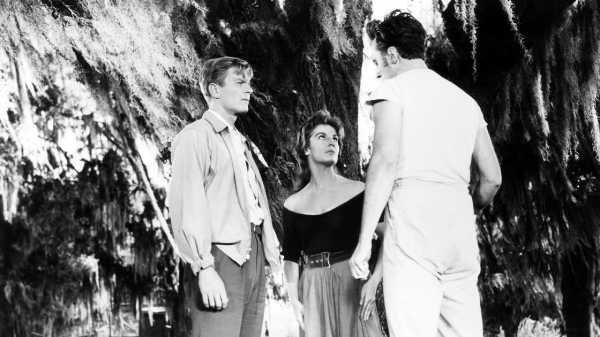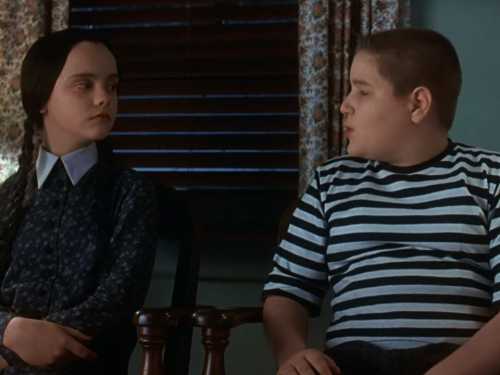
“Bayou,” a 1957 ultra-low-budget and independently produced drama filmed on location, in waterfront Cajun country, in Louisiana, was reissued in 1961, with some added footage, as a sensational exploitation film called “Poor White Trash.” The original film was made with brazenly mercantile yet artistically sound intentions, and, despite its vulgarizing touches, it’s a crudely effective story about tradition and modernity, misogyny and resistance.
No one would mistake its director, Harold Daniels, a journeyman B-movie filmmaker, for an unheralded artist, but, working with a noteworthy cast and filming on sites of pictorial allure, he composes images of spare and graphic intensity and elicits comparably fierce and tense performances—and sometimes more. The story is brutal and ugly. It’s set in a milieu of poor Cajun crab-trappers and fishermen—and one fisherwoman, a seventeen-year-old named Marie (Lita Milan), whose well-meaning father (Douglas Fowley) worries that it’s time for Marie to follow the lead of other women her age and settle down. But Marie, one of the community’s few high-school graduates and an enthusiastic reader, yearns to leave the region and see the world. A brutish local store owner, Ulysses (Timothy Carey), lusts after her, and, when she rejects him, he tries to grab her. When she flees his grasp, he pursues her in a harrowing, horrific chase and rapes her.
Marie has no recourse and no one to speak to, and she gives no thought to turning to the law. Her mother is dead, she’s isolated with her father, and her sole outlet is prayer—but a scene of her praying in church is filmed with grave fury that suggests her unaddressed trauma. Meanwhile, the settled ways of the community are being slightly roiled by the arrival of an outsider—a twenty-eight-year-old New York architect named Martin (Peter Graves, later the star of TV’s “Mission: Impossible” series), whose design for a New Orleans concert hall is under consideration and who’s on the bayou to fish with political operatives. Marie and Martin meet, by chance, and fall in love—but Ulysses claims Marie for himself and plans to fight Martin and drive him away whipped.
The character of Ulysses is an unredeemed monster, a hulk of force, will, and violence; he uses his economic upper hand and physical strength to get his way, and he crudely, unambiguously says as much. Ulysses is no antihero or wayward soul; he’s the embodiment of evil, every villager’s idea of a bad man. Carey, one of the most fascinating and original actors of the time, possesses the role with snarling bravado, which finds an extravagant, terrifying outlet in a dance sequence that outdoes Elvis in unambiguous sexuality. Carey sweats, writhes, thrusts, twitches, shivers, and grimaces with an expression of orgasmic fury. There’s nothing suave or alluring about the frenzied routine; the monster has removed any vestige of a mask and makes a mockery of the very notion of community standards, which his neighbors, inhibited by the weight of their own norms and morals, are impotent to maintain. The devouring power of the character of Ulysses poses basic political and social questions that remain infuriatingly current.
Stream “Poor White Trash” on Amazon Prime.
Sourse: newyorker.com






